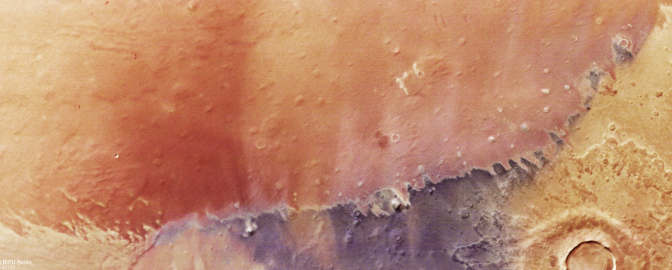Policy is the prime mover of space exploration. It sets in motion government resources, defines regulatory requirements, and releases funds from national treasures. Good policy is, therefore, critical for success in space.
The Planetary Society participates in the process of developing space policy by providing original analysis, releasing policy recommendations, and generating useful data for public and academic use.
Featured Reports
Space Policy Recommendations for the Second Trump Administration
The Planetary Society believes that by embracing a clear and unwavering commitment to exploration, discovery-based science, and the unique capabilities of public and private space sectors, NASA can help maintain technology leadership, promote an open and inquisitive culture, and enable ongoing economic prosperity. We have a solid foundation from which to work. And by embracing the unique role of NASA and its responsibility to the nation, the path forward will endure for years to come.
The Search for Life as a Guidepost to Scientific Revolution (PDF)
In this submission to the 2023 - 2032 planetary science decadal survey, The Planetary Society argued for the importance of the search for life, not just as an inspiring goal, but as a means to achieve a scientific revolution within biology and medicine. Unlike past revolutions, searching for life presents a clear pathway for success: we know how to do it, and we know where to look.
Datasets
Historical NASA Budget Dataset
A comprehensive, open dataset of NASA budget requests, congressional appropriations, and workforce data from 1958 to the present.
Dashboard: NASA Science Spending Across America
See the local economic impact made by NASA's science activities in states and congressional districts across the United States
Dashboard: NASA Contract Cancellations
A weekly-updated page tracking the amount and location of NASA grants and contracts cancelled by the White House.
NASA Mission Spending Tracker
A month-by-month spending reference for threatened NASA science missions.
The Planetary Exploration Budget Dataset
The cost per mission, per year, for every robotic planetary exploration effort in NASA's history.
Project Apollo Historical Cost Dataset
A rich data set tracking the costs of Project Apollo, free for public use. Includes unprecedented program-by-program cost breakdowns, facilities construction, salaries, and related programs.
How Much Did it Cost to Create the Space Shuttle?
Between 1972 and 1982, NASA spent approximately $10.6 billion to develop the space shuttle and its related facilities.
Your Guide to NASA's Budget
How big is NASA's budget right now? What was it like in the past? How does it compare to the rest of government spending? These answers, as well as charts, raw data, and original sourcing, are contained within.
Latest Articles and Analysis
300 space advocates rally in D.C. to Save NASA Science
The Save NASA Science Day of Action drew nearly 300 people from across the United States to Washington, D.C., to promote space science and exploration.
Introducing Ari Koeppel, our first AAAS Policy Fellow
In a milestone that reflects our expanding advocacy and outreach presence in Washington, D.C., Ari Koeppel will join The Planetary Society as the organization's first AAAS Science & Technology Policy Fellow.
A cosmic perspective worth fighting for
NASA's science budget is under threat. Here's what that could mean to the human endeavor of exploration.
NASA's disastrous 2026 budget proposal in seven charts
The White House has put forward a radical, wasteful proposal for NASA. We have the data to prove it.
Planetary Radio: Space Policy Edition
The Planetary Society's Chief Advocate, Casey Dreier, hosts this monthly podcast that engages the world's experts in space policy and history to share the behind-the-scenes stories of how space exploration actually happens. Available on major podcast providers, learn how to subscribe.
Chief of Space Policy Casey Dreier and Director of Government Relations Jack Kiraly break down what NASA authorization bills actually do and why these laws matter for long-term U.S. space policy, from science missions to human spaceflight and planetary defense.
How We Work: Space Policy & Advocacy
Space exploration doesn't just happen—it requires a vigilant and educated public to demand support for this unique program. Be one of them. We'll show you how.
Space Agencies
A look at some of the agencies that make space science and exploration possible.


 Explore Worlds
Explore Worlds Find Life
Find Life Defend Earth
Defend Earth














